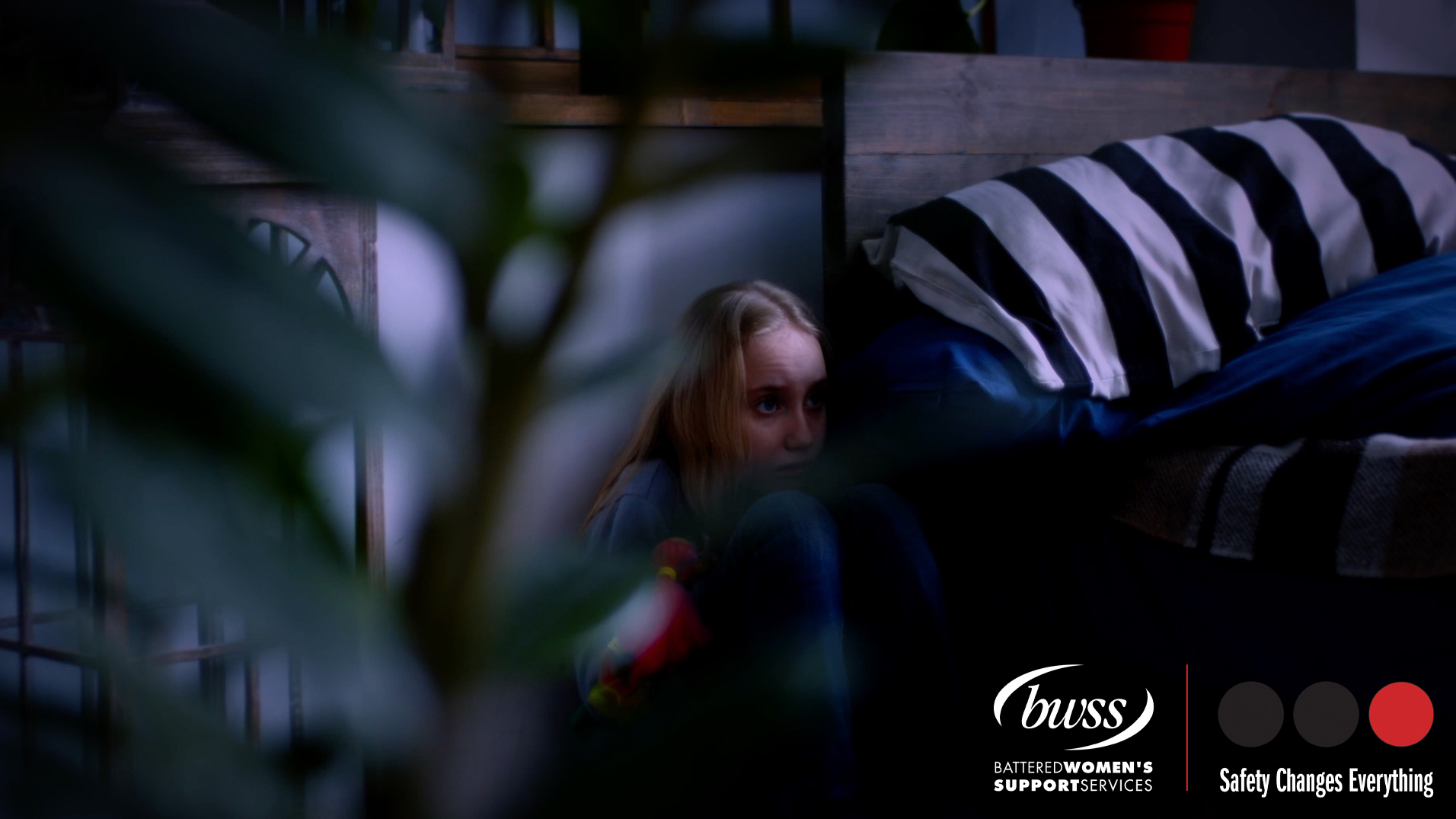
16 Days of Activism Against Gender-based Violence
Press release
Vancouver, BC – Battered Women’s Support Services (BWSS) releases a public service announcement (PSA) to highlight the COVID-19 Shadow Pandemic of the alarming increase in violence against women.
We are currently facing a double global pandemic health and social crisis. Prior to COVID-19, an estimated one woman was killed every three days by her intimate partner in Canada. According to the United Nations (UN), multiple forms of gender-based violence especially physical, psychological, sexual and economic forms of domestic abuse have spiked during COVID-19 due to existing power imbalances exacerbated by household economic and food insecurity, and confined living conditions. As COVID-19 continues to strain the health system, rising cases of domestic violence is putting women and their children in immediate danger. The UN reported that critical services to support women such as shelters, helplines and support centres have reached capacity as women are in dire risk.
“Everyone is talking about the race for a COVID-19 vaccine, but we are at a critical moment in a race against time to help women and children get to safety from immediate danger at the hands of their partners,” says Angela Marie MacDougall, Executive Director, BWSS. “We all need to recognize the seriousness of this situation, which can mean life and death. BWSS is a lifeline for many women, quickly connecting them to crucial services during a crisis.”
The UN called governments around the world to make the prevention and redress of violence against women and girls a key part of the national response plans for COVID-19. They found that less than a quarter of the 206 countries analysed in a recent study treated violence against women as an integral part of its national and local COVID-19 response plans with very few adequately funding measures.
“Canada and British Columbia are among those that are not treating services for women experiencing violence as essential in response to COVID-19,” says MacDougall.
When COVID-19 lockdowns happened in March 2020, BWSS responded immediately by making its crisis line available 24 hours per day, seven days a week. There was a 300 per cent increase in calls, stretching to meet the demand of services extending beyond the crisis line. The Shadow Pandemic is spreading and we are in an urgent need to resource this societal crisis affecting millions of women and families.
Quick Facts
- Globally, 35 per cent of women have experienced physical and/or sexual intimate partner violence or sexual violence by a non-partner.
- According to the UN, calls to helplines have increased five-fold in some countries as rates of reported intimate partner violence increase because of COVID-19. BWSS has seen an unprecedented 300 per cent increase in calls since COVID-19.
- By September 2020, the UN reported that 48 countries had integrated prevention and response to violence against women and girls into COVID-19 response plans. Canada has yet to launch a national plan to address violence against women as part of the COVID-19 response.
- According to the Canadian Femicide Observatory for Justice and Accountability, a total of 118 women and girls were killed by violence in Canada in 2019. On average, every three days one woman or girl is killed in Canada.
- The Canadian Femicide Observatory for Justice and Accountability reported that from 2016-2019, women and girls continue to be in the greatest danger in their homes with more than half (55 per cent) being killed in their own home or the home they shared with the accused. With the COVID-19 pandemic, this number is expected to increase.
- Less than 40 per cent of women who experience violence seek help of any sort. According to available data, women who do seek help, most look to family and friends and few look to formal institutions with less than 10 per cent seek the help of police. Women-centred organizations like BWSS are positioned to provide community-based support that are unique to women’s needs. BWSS is equipped to handle emergency situations providing fast-acting service starting with a phone call and working towards a safety plan to remove women and children from violence that can be life-threatening and connecting to health and counselling services.




